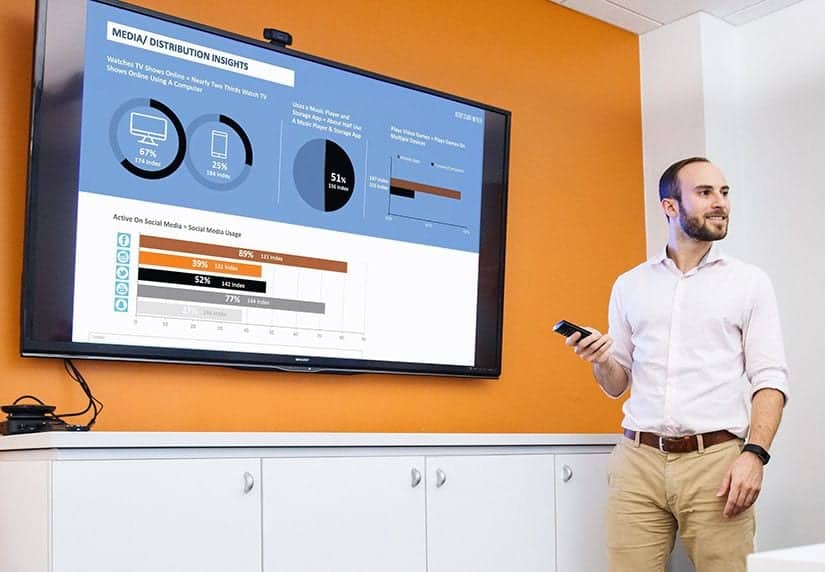Is It Time to Rethink Your Brand’s Reliance on Facebook Advertising?
This article originally appeared on Social Media Today.
4 min read
Ken Schaefer : Aug 10, 2017

Currently, the big story in the browser wars is ad blocking provided by your favorite browsers, Google Chrome and Apple’s Safari, which are both planning to roll out these new capabilities in 2018. In the last month or so, both companies announced plans to release ad blocking technology turned on as default within their browsers. What does this mean for users and what does it mean for advertisers? Let’s take a look.
First, let’s define the usage of these browsers. They are not necessarily your favorite browser. According to w3schools.com browsers stats, the Google Chrome browser is used by almost 76% (and growing) of us while Safari is used by 3.7%. For all devices – mobile and desktop. With Chrome at such a high market share, it doesn’t make much sense to talk about the other options; but in case you were interested, Firefox is at 13.6% and dropping. IE/Edge is 4.6%. (You really should update Grandpa’s browser for him already.)
Not only does Google Chrome account for more than three-quarters of all browser users, according to eMarketer, Google will account for almost 41% of all digital ad revenues in 2017. With the power that Google commands when considering both the browser penetration and advertising presence, their ad blocking announcement screams of anti-trust violations. I’m sure Google’s lawyers are spending a whole lot of late nights trying to set up their arguments for the upcoming backlash. I, however, have a different opinion…
I read through Google’s plans for ad blocking through lens of an SEO practitioner, which tells me that although Google is ALWAYS looking to make money via search, they implement quality controls and standards. They understand that by providing the best user experience at google.com, we’ll all continue to utilize their service and occasionally click on paid search ads and, in turn, Google will continue to make money. Google knows that without an amazing search product, they will eventually lose to one competitor or another. So, they put the user first and focus on providing the best user experience possible. Google works tirelessly to improve user experience to ensure that users turn to their search engine when there is information to be found. Google has also made it very clear to us SEOs (through Panda, Penguin, Hummingbird, etc.) that if a site is not beneficial for the user, it is not going to rank well. Google only wants to feature the best content for their users so that the 98% of searchers that click on organic search ads just might occasionally click on a paid search ad. Listen, when you’re serving 100 billion searches per month, 2% is a lot of CPC.
Now, with ad blocking on Chrome, Google is making another move to increase their market share by improving the user’s browser experience. In other words, Google is applying its higher standards to all ads served within its browser, not just search ads. This means Chrome may block pop-ups, ads with auto-play video, ads that might have malware, redirects to app stores and other intrusive ads.

An example of the types of ads Google is trying to block. Image sourced from ABC News Channel 12.
Let’s think about this first, purely as a user. Won’t it be a blessing to not be forced to find some small video ad running with sound on while you’re trying to read the article you were really interested in? Or to not have to try to locate the correct button to close out of a full-page pop up ad? Of course, this is the reason why ad blocking software was created in the first place. Again, this is Google making a better product for all of us. One that will continue to grow market share. If Google Chrome continues to provide the best browser experience, we will continue to use it as our browser of choice. And with ad blocking turned on by default, we won’t feel the need to install other 3rd party ad blockers that might block Google’s ads. Seems pretty brilliant to me.
The real problem in all this is the fact that Google is deciding what gets blocked. While they are working with the Coalition for Better Ads to develop standards for “bad advertising,” in the end, Chrome is Google’s own product. This initiative gives Google a whole lot of power and, well, naturally that is going to be controversial. I’ll also add that Google (as well as Facebook, GroupM, The IAB, among others) is part of this same coalition.
While Google’s announcements say this effort is all in the name of a better user experience, one has to ask: would they bother if it wasn’t directly benefiting them in one way or another? That’s where the anti-trust complaints will come in to play. It’s probably not fair that the internet’s largest advertiser with the largest share of browser usage isn’t going to show you ads that it thinks are annoying but hey, lawyers need to eat, too.
The other major implication is the inevitable ripple this is going to cause in the ad industry. For reputable agencies, it will be business as usual. Great creative garners great results. However, agencies that are currently deploying creative that includes flashing headlines and dancing babies (not naming names here) will need to raise the bar. Media planners will have to put together concrete plans using quality creative and not just hope for inadvertent clicks to prove out their media plans. Google is always looking to provide a quality experience and the industry will need to follow suit. Personally, I think this is a good thing. Start getting used to hard work.
In the end, I still have to believe that Google is working on providing the best user experience for us all because yes, it benefits them. But, if it also benefits us, the users, and we don’t have to see noisy, frightening dancing monkey banner ads, maybe we shouldn’t be complaining. And for those advertisers that are complaining, I have to ask why? Maybe it is time to clean up your act and stop reporting on inadvertent clicks as your bread and butter. Your clients are wising up.

An example of a pop-up browser ad. We’ve all experienced them. Image sourced from Make Use Of.

This article originally appeared on Social Media Today.

Google yesterday announced on its Adwords blog that native Gmail ads will now be available for all advertisers directly in AdWords. The company has...